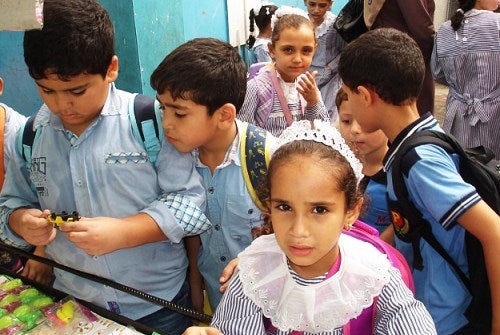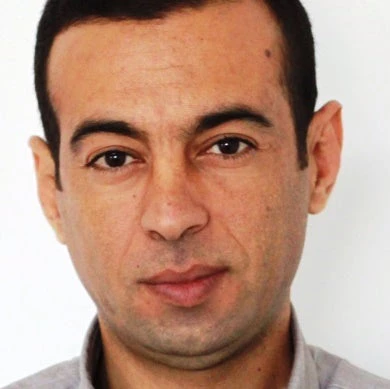 With the start of the new school year, my children are eager to get back into their classrooms, like all students after a long summer vacation. Perhaps, they feel as they grow and advance to the next level that their dreams are getting closer.
With the start of the new school year, my children are eager to get back into their classrooms, like all students after a long summer vacation. Perhaps, they feel as they grow and advance to the next level that their dreams are getting closer.
But their mother and I are filled with anxiety and confusion as we search for schools near our home, fearful of the dangers that lurk as a result of the continuing conflict between armed factions and Israel. We live in constant fear that a sudden war will break out, as it did in 2008, when Israeli aircraft launched a series of intensive raids against Gaza, and we started shouting and racing to bring our children home from school. Those fateful hours haunt us every year and are the unspoken reason we want our children to attend a school near our home, although we keep silent and don’t tell them this.
Mohammed was the most excited of all my children this year. He wanted everything to be new and different as he was moving up to middle school. He chose Salahuddin Boys’, an UNRWA school, and bought a new uniform and backpack. His dreams have matured as well, and he wants to become a heart surgeon. I don’t know why he chose this specialty, but perhaps it is because he was in a traffic accident a few years ago and had to undergo several operations as a result. Mohammed is a horseback rider and an honor roll student, and the only thing detracting from his happiness are the strikes that accompanied the start of this school year by UNRWA workers because of the budget deficit facing this international institution.
Our triplet daughters, Sama, Saba, and Basma, look lovely in their striped school uniforms. They are very excited, as they will be attending a school that has been rebuilt to accommodate the children of refugees. They are overjoyed with the new school with the new desks that match the girls’ new uniforms and school supplies. Their excitement grows day by day.
Sama wants to be a journalist. She likes to talk and asks questions about everything, but she doesn’t want to get older because she dreads having to wear the hejab, which has become widespread in girls’ schools in Gaza.
Saba wants to be an engineer, possibly driven by the sight of the destroyed houses lining the streets of Gaza, or maybe the frequent electricity blackouts bother her and she wants to repair the only power plant we have.
Basma, the third of the triplets, is very good at drawing and I have been looking for a studio where she could develop her talent. But she is also looking forward to studying chemistry.
Most schools in Gaza are limited to the standard curriculum and do not offer extra-curricular programs in art, music, or sports. There is no room in Gaza for these activities, as people have difficulty finding the time to meet even their basic needs.
I am like any father in Gaza. We live in an area that UN organizations predict will become uninhabitable by 2020 if things do not change. This means that the dreams of my children are in jeopardy. At the end of the last war, which lasted 51 days, a friend said to me that it was by pure chance that we are still alive. And yet, we must continue to hope, because there are children who still get excited about going to school every year and who have dreams they hope to fulfill.
The opinions expressed in this article are those of the author alone and do not necessarily reflect the views of the World Bank Group.


Join the Conversation